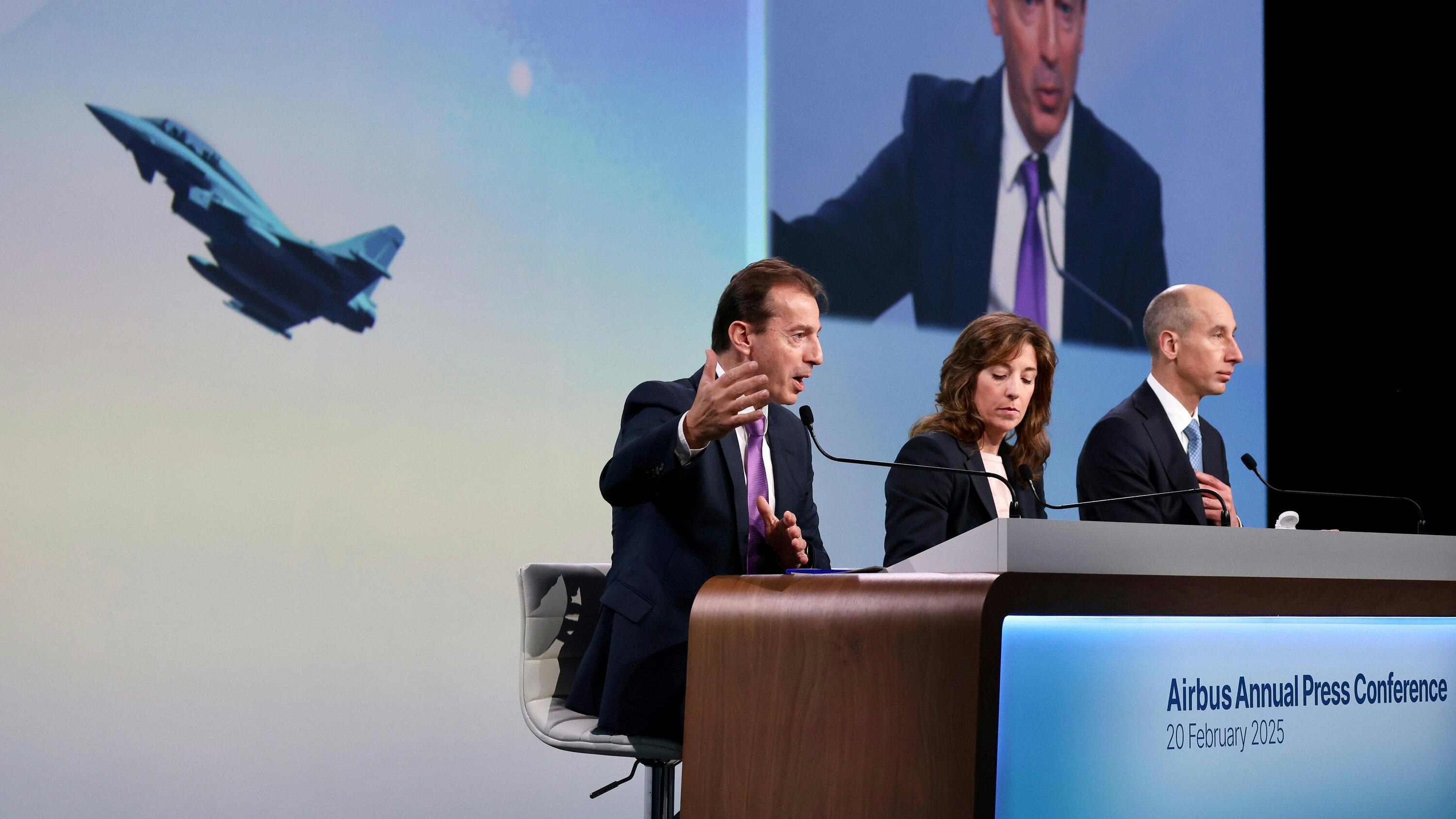AeroGenie — Your Intelligent Copilot.
Trending
Categories
Airbus CEO Guillaume Faury Discusses Supply Chain, Tariffs, and Future Aircraft

Airbus CEO Guillaume Faury Addresses Supply Chain Challenges, Tariffs, and Future Aircraft Development
At the U.S. Chamber of Commerce Global Aerospace Summit in Washington, D.C., Airbus CEO Guillaume Faury provided a comprehensive update on the company’s current status and strategic outlook. His remarks covered critical issues including supply chain recovery, production targets, tariff impacts, and the development of next-generation aircraft.
Supply Chain Recovery and Production Outlook
Faury reported notable progress in Airbus’s supply chain compared to 2023, with the majority of suppliers now meeting delivery schedules. Nevertheless, he identified engine manufacturers as the principal constraint affecting on-time aircraft deliveries. During the first half of 2025, Airbus averaged approximately 60 “gliders” per month—aircraft completed but awaiting engine installation. Despite this bottleneck, Faury expressed confidence that engine suppliers would recover by the end of the year, enabling Airbus to achieve its ambitious goal of 820 aircraft deliveries in 2025.
The CEO emphasized the persistent pressure on the supply chain driven by robust airline demand, particularly ahead of the summer peak travel season. He underscored the necessity of proactive planning for potential disruptions, stating, “You can’t be speculating on the fact that everything will go well. You have to factor in crises and recover today.” Many of the delayed aircraft are expected to be delivered in the latter half of the year as engine availability improves.
Airbus’s complex global supply network, which involves thousands of components per aircraft, remains a critical factor in its competition with Boeing. Faury’s comments highlighted the ongoing challenge of balancing ambitious production targets with the realities of supply chain constraints, quality control, and manufacturing scale.
Expansion in the United States and Tariff Implications
Faury also highlighted Airbus’s expanding manufacturing presence in the United States, particularly at its Mobile, Alabama facility. The site currently operates two assembly lines for the A321 and one for the A220, with plans to add a third final assembly line. This expansion is projected to elevate Mobile to the position of the world’s fourth-largest commercial aircraft production site. Airbus delivered 91 aircraft from Mobile in the previous year, and with the new line operational, capacity is expected to reach approximately 200 aircraft per quarter. Faury framed this growth as a clear demonstration of Airbus’s commitment to the U.S. market and confidence in sustained long-term demand.
While Airbus has not been directly impacted by tariffs, Faury acknowledged the broader challenges these trade measures pose to the aerospace industry. He cited the example of Pilatus, which temporarily suspended U.S. deliveries of certain models due to tariff-related pressures. Such disruptions illustrate the volatility that trade policies can introduce into global aerospace supply chains and underscore the importance of strategic adaptability.
Advancing Next-Generation Aircraft and Strategic Initiatives
Looking to the future, Airbus is progressing with its next-generation single-aisle aircraft program, aiming for a launch by the end of the decade and entry into service in the mid-2030s. The new aircraft is designed to achieve a 20 to 25 percent improvement in fuel efficiency, reflecting Airbus’s ongoing commitment to sustainability and innovation. Faury also reiterated efforts to consolidate European space businesses to strengthen competitiveness against American rivals.
His remarks collectively underscore Airbus’s determination to navigate supply chain challenges, respond to evolving trade dynamics, and maintain its competitive position as the aerospace industry continues to evolve.

Emirates Unveils Cabin Design for New Boeing 777X

Eighteen Years On, the Airbus A380 Remains Central to a $34 Billion Airline

How a boom in luxury airline seats is slowing down jet deliveries

Navitaire Outage Attributed to Planned Maintenance

DigiYatra Debuts Outside Aviation at India AI Impact Summit

Vietnam Orders Strengthen Boeing’s Commercial Outlook

Airbus Signals Uncertainty Over Future A400M Orders

JobsOhio Awards $2 Million Grant to Hartzell Propeller for Innovation Center

Collins Aerospace Tests Sidekick Autonomy Software on YFQ-42A for U.S. Air Force CCA Program

How the Airbus A350-1000 Compares to the Boeing 777
